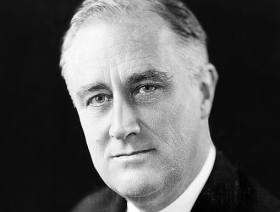How FDR compensated for weaknesses
 Here’s how things stood in 1933: The jobless rate in America hit 25%. Business investment choked. Banks defaulted. Totalitarianism swept the globe.
Here’s how things stood in 1933: The jobless rate in America hit 25%. Business investment choked. Banks defaulted. Totalitarianism swept the globe.If President Franklin D. Roosevelt hadn’t restored faith in the economy, the United States might have slid into a dictatorship. Such influential people as William Randolph Hearst and Walter Lippmann urged him to take on extraordinary powers. At his inauguration, someone told FDR that if he failed, he’d go down as the worst president in American history.
“If it fails,” he responded, “I’ll be the last one.”
Far from perfect, FDR appeared vain, insincere, a liar and, generally, not a nice guy, according to his critics.
So, what did FDR have going for him? He understood his weaknesses and compensated for them.
What he accomplished:
- He avoided becoming as inflexible as his predecessor, Herbert Hoover.
- He surrounded himself with smart people: his staff and a famous “brain trust” that developed policy and ran federal departments. He’d listen to their arguments and implement their best ideas.
- He learned from his many mistakes, such as failing to see how deposit insurance would help the banking system.
- He was practical, abandoning an idea, even if it seemed brilliant, once it became clear that it wasn’t going to work.
- He saw himself not as the boss or savior of Americans but as the “present instrument” of their wishes. While leaving to others what should be done, he focused on what could be done.






